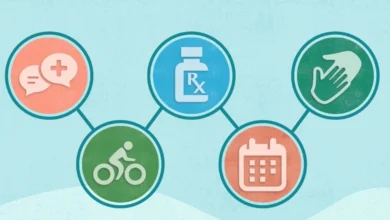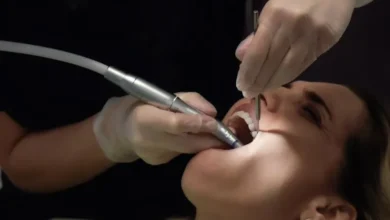How To Recover From Substance Use Disorder: Creative and Practical Strategies

When grappling with substance use disorder (SUD), the road to recovery may appear daunting and fraught with obstacles. However, it’s a transformative journey that offers a chance at renewal and well-being. Understanding the complexity of addiction and the various facets of treatment can empower individuals to seek out the help they need and reclaim control of their lives. Creative and practical strategies play key roles in fostering long-term success. Below, we’ll delve into innovative and effective approaches to addiction recovery.
Contents
Understanding Substance Use Disorder and the Recovery Journey
Recognizing substance use disorder as a multifaceted illness is crucial for reducing stigma and promoting recovery. It encompasses physical dependency, psychological impacts, and social consequences. Recovery is deeply personal and varies for each individual, necessitating tailored treatment plans.
Acknowledging the problem is a significant step towards healing, leading individuals to seek professional help and support. Success in recovery manifests in improved health, restored relationships, and a renewed sense of purpose in life.
Detoxification, a critical phase in the recovery journey, requires qualified medical supervision for safety and comfort. Facilities like acdiamond.net, an Arizona rehab for dual diagnosis, provide essential support during this challenging period.
Recovery is an ongoing journey rather than a destination, demanding constant commitment and perseverance. Progress often leads to a deeper self-understanding and insight into the factors contributing to substance use.
Embracing Therapy and Counseling Options
Effective SUD treatment relies on therapy and counseling, offering crucial mental and emotional support for recovery. Different forms such as individual, group, and family therapy play key roles.
Individual therapy delves into understanding addiction’s roots, developing coping strategies, and setting personal goals. Cognitive-behavioral therapy (CBT) is particularly effective, in altering negative thought patterns and behaviors linked to substance use.
Group therapy fosters community and mutual support, reassuring individuals they aren’t alone in their struggles.
Family therapy acknowledges addiction’s impact on relationships and aids healing for all involved, strengthening support networks.
Integrating treatment for co-occurring disorders is vital, addressing mental health issues alongside SUD for a comprehensive recovery process and reduced relapse risk.
Leveraging Support Systems and Recovery Communities
Recovery communities like Alcoholics Anonymous and Narcotics Anonymous offer invaluable support and structure for individuals seeking sobriety. Through step-by-step processes and regular meetings, they affirm that recovery doesn’t have to be faced alone.
Online forums and social media groups provide accessible support, particularly for those hesitant to seek help in person. Their anonymity and convenience can offer comfort and connection from home.
t’s crucial for individuals in recovery to surround themselves with understanding and supportive people. In these communities, triumphs are celebrated, and setbacks are met with compassion, fostering resilience.
Mentorship from those who have successfully recovered is also key. Their guidance and shared experiences can make a significant difference during challenging times.
Implementing Lifestyle Changes for Holistic Health
Lifestyle changes are crucial for maintaining recovery and preventing relapse. This includes regular physical activity, a balanced diet, and enough sleep, which not only improve physical health but also mental and emotional well-being, reducing the risk of cravings and relapse.
Engaging in hobbies and recreational activities provides joy and fulfillment outside of addiction. Whether it’s music, art, gardening, or hiking, these interests promote mindfulness and serve as therapeutic outlets.
Establishing structured routines and setting goals helps individuals stay focused on their recovery journey. Long-term goals coupled with short-term milestones encourage progress and motivation.
Stress management techniques like meditation, yoga, and deep-breathing exercises are essential for managing pressure and avoiding substance use. These practices promote relaxation and mental clarity, aiding individuals in handling challenges with composure.
Relapse Prevention Strategies and Maintaining Sobriety
Maintaining sobriety requires ongoing efforts such as therapy, support groups, and self-awareness to prevent relapse. Recognizing and managing triggers is crucial and develops with counseling and support networks.
Having an emergency plan for high-risk situations can reduce panic and confusion, providing steps and resources during crises. Continuous education about substance use disorder, including new research and recovery stories, offers motivation and strategies for staying sober. Setbacks should be seen as opportunities for growth in the journey of recovery. Each effort contributes to achieving a healthier life.
Overall, recovery from substance use disorder requires a multifaceted approach. Therapy, support networks, lifestyle changes, and relapse prevention are key components. By embracing these strategies, individuals can pursue lasting sobriety and enhance their well-being.



